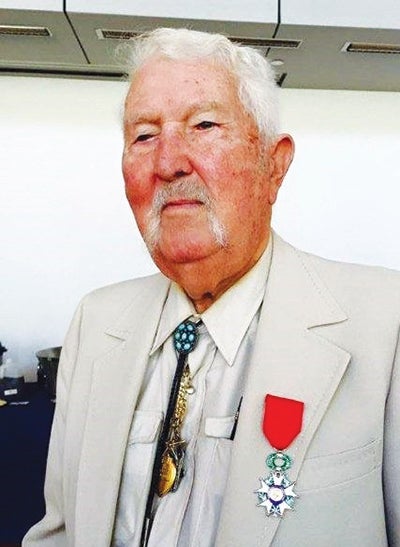Editorial: Harold Frank the definition of freedom
Published 10:15 am Friday, January 5, 2024
|
Getting your Trinity Audio player ready...
|
Freedom.
Webster’s Dictionary describes the meaning of the word as “… liberation from slavery or restraint or from the power of another – independence … the quality of being exempt or released, usually from something onerous … the quality of being frank, open or outspoken.”
While reflecting on my friend Harold Frank’s recent passing, that word kept coming into my mind.
Freedom.
He fits every definition.
And because of Harold Frank and people like him, all of us can experience freedoms that few others worldwide get the chance to experience.
I first met Harold Frank in the late ‘80s or early ‘90s while taking photographs at Davie High School basketball games. He was a reserve sheriff’s deputy assigned with keeping order in the gym, and conversations ensued. A long-time resident of Davie County, he, of course, knew the Barnhardts, including my dad. And he had married the sister of my cousin’s husband, so we had something to talk about between the action on the court.
The talk quickly turned to his favorite hobby, raising and competing with game fowl – in other words – fighting chickens. It was a hobby that he and wife Reba enjoyed together for years. He even testified before Congress to try to keep his favorite sport legal.
I also started to learn some of his personal history. He had a necklace with a bullet – a bullet taken from his shoulder after he was wounded in World War II, and taken prisoner by Germany.
I had already written an article on his gamefowl hobby; it even earned a national award. So I asked if he could tell me his story from the war, knowing it would be just as, if not more, interesting.
Absolutely not, he said. He meant it.
He wasn’t being hard to get along with. There was a good reason that Harold Frank wasn’t going to tell what he went through in World War II.
Reba.
He didn’t want his wife to be upset, learning of the horrors he experienced as a prisoner in a Germany.
I understood.
That interview about his war time came later, just before his wife’s passing in 2016. The interview took hours.
If you knew Harold Frank, you knew he was tough man with an even tougher persona. He wasn’t scared of anything.
But when he talked about being a prisoner of war, his voice cracked. An occasional tear would stream down his face. I won’t recap those horrors here.
Harold Frank survived.
He went into the war as a skinny 19-year-old boy whose idea of freedom was the ability to shoot blue jays from a neighbor’s pecan trees, and came out as a 21-year-old man who had an entirely new knowledge of the meaning of the word freedom.
Even when he returned home, life wasn’t easy. He took a bus for a job in a furniture factory in Lexington. It may not have been easy, but that’s where he met Reba. Her red hair and sparky personality immediately caught his attention, and before long, they had married and moved to her home county, Davie.
Harold Frank later retold his war story over and over, and Mark Hager put it into movie and book forms for people worldwide to see and read forever. We’re all grateful for that.
I’ll never forget the last comment Harold Frank had during that first interview about the war.
“I ain’t no damn hero.”
In a way, he was right. He was only doing what thousand of other American boys did and would have done.
But in reality, he was wrong.
Just being a prisoner of war didn’t make him a hero. Experiencing that and then going on to live a long life without burdening others with his story made him a hero.
Freedom.
Thank you, Harold Frank.
– Mike Barnhardt


